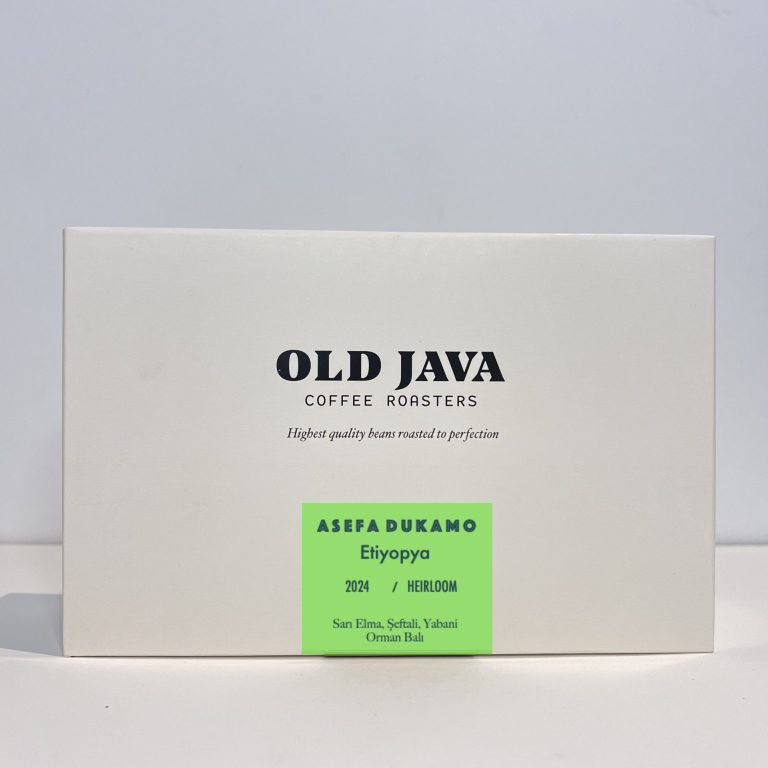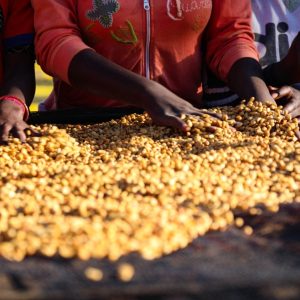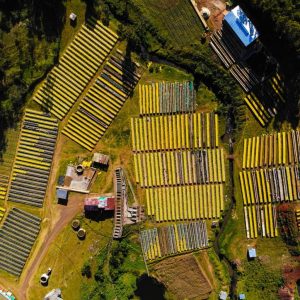Special Discount in Cart 10%
Ethiopian / Asefa Dukamo
£15.00

250 grams
Filter Recommendation
Tasting This coffee is a high quality Ethiopian Heirloom example that shows individual honey characteristics with the processing method. Apple, yellow peach tea, wild forest honey are the three most prominent cup characteristics. It has soft stone fruit and stone fruit-like acids. Wildflower honey sweetness. This coffee has a really deep aroma complex with a long lasting sweet finish on the palate.
Production Produced by Asefa Dukamo Korma producer at Qonqana Asefa 1 station. Harvest date 2023 / 2024, Lot ET-24-2016 / Grade 1.
Details
| Bölge | Sidama Bensa |
| Yükseklik | 1920 – 2020 |
| İşlem | Natural |
| Cins | 74158 / Indigenous Heirlooms |
| Hasat | 2024 |
METHOD
Many of us use tap or bottled water when making it at home. Unfiltered and pH balance incompatibility with coffee prevents water usage and good coffee extraction.
In addition, there is more maintenance than the water used for coffee needs, even boiling. Pouring boiling water into coffee also allows you to make bad coffee. It is important to use approximately 91–96 OC water here. The pH should be close to neutral.
Remember that your coffee should be roasted at least 5 days ago and that a rested coffee will achieve better results in extraction sleep. This brings you closer to the desired aroma in finding the coffee. In a rested coffee, harsh and bitter notes begin to disperse.
Again, depending on the extraction, you need to determine your coffee ratio at the level of the equipment used
Asefa Dukamo
Qonqana Station is named after a river that flows next to the station. It is one of the largest and oldest stations in the region and is often referred to by locals as the “Main Station”. The station houses 327 African Beds, along with eco-friendly pulping and re-separation machines, fermentation tanks and washing tunnels.
Bombe Qonqona Station, often referred to by locals as the “Main Station”, is located in the Bombe conditions of Ethiopia. The facility, managed by Asefa Dukamo Korma, is located at an altitude of 1,910 – 2,010 masl and produces Washed, Honey and Natural coffees. Approximately 1,020 farmers donate their cherries to this facility, most commonly 74110 and 74112.
The natural batch is immediately left to dry on the beds, constantly moving them for even drying. This process takes 16-21 days, depending on the weather. The honey batch is cleaned of pulp and immediately left to dry on beds, constantly moving for 15-20 days for proper drying. The washed portion is traditionally warm fermented by Anaerobic fermentation in closed tanks for about 36 to 72 hours and then rinsed in water tunnels to dry on African beds for about 12 to 15 days.

Qonqona – Main Station…
Bombe Qonqana, named after the river that passes through the Washing Station, is the largest and also the oldest station under the management of Daye Bensa and also their starting point!
Established in 1996 as a producer, Daye Bensa has maintained all the storage conditions of the coffee products and the market in the region. Today, they are in a position of excellence and a reference in Ethiopia and work with cherry sorting, various cropping departments. Bensa works with several washing stations in the Sidama region, including some of which they own.

Ethiopian Heirloom
Sub-varieties: 74110 , 74112 , 74148 , 74165 , Bishari , Java , Kurume , Pink Bourbon and Wush Wush
Heirloom (or sometimes Landrace) is a generic term that refers to all coffee varieties native to Ethiopia.
As the birthplace of coffee, the trees have been expanding and crossing over these centuries. As a result, today there are a number of sub-varieties – Heirlooms – that share some common genetic makeup but have slightly different behaviors.
Only recently, in the last few countries, have the names of the different endemic varieties grown widely, according to their production and yield, been established and organized in an organized effort. Some examples are Kurume, Dega and Wolisho.
However, while most of the country’s production is naturally bred varieties, there are some cases where we are starting to see intentional additions of varieties that have been specifically created and laboratory developed for their resistance, yield and flavor performance. One of the national institutions is the Jimma Agricultural Research Center (JARC).
Varieties 74110 and 74112
The locally classified subtypes 74110 and 74112 were specific for resistance to coffee berries in the 1970s at the Jimma Agricultural Research Center (JARC). These two varieties were catalogued in 1974 and start with “74” to indicate their characteristics.
Variety 74110 was selected from an original “mother tree” in Bishari village, Metu district, Illuababora district, Oromia region. After researching the resistance and overall yield of the coffee berry, the JARC variety was released in 1979. The 74110 tree is short and compact, with small houses, cherries and beans.
WHY COFFEE SUBSCRIPTION?
With subscription, we send 2 different coffees to your address at any time you want, every month.
We constantly update our very special coffee collection from different coffee geographies of the world and always have fresh harvest coffees.
There is also a store delivery option in subscriptions! Would you like to get more discounts with this option?
Decide on SUBSCRIPTION products, then we will reach you immediately!
Our order team will fulfill your request as soon as possible.
.
